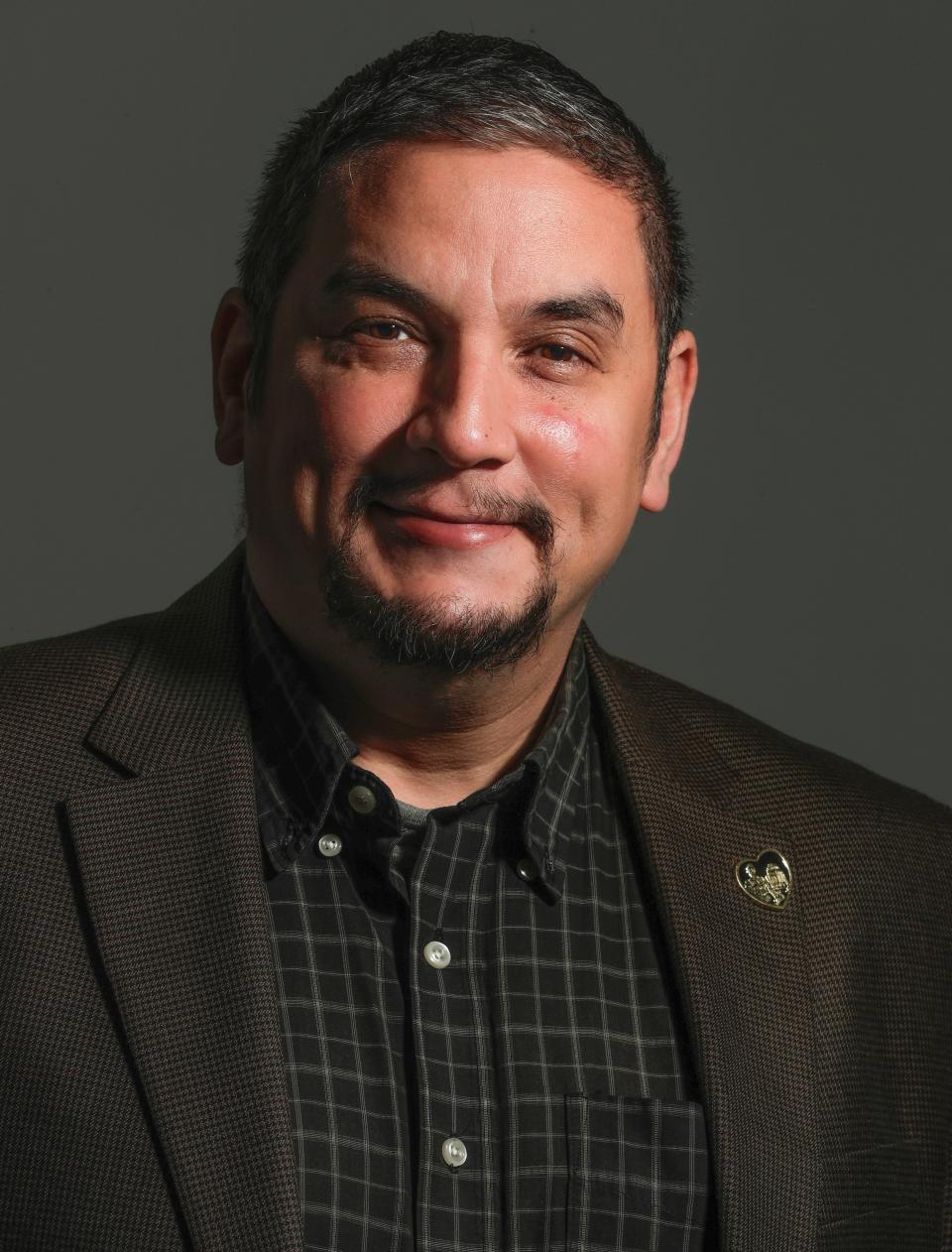Hobart’s choice for village president could impact the village’s relationship with Oneida Nation. Here's what to know ahead of the April 4 election.

HOBART – One issue that could play a major factor in the race for president of Hobart is the village’s past relationship with the Oneida Nation.
The incumbent president, Richard Heidel, has led the village for 19 years. For much of that time, he has asserted an often antagonistic approach to relations with the tribe.
Heidel is facing a challenge from Jody Hakes, a 30-year resident of Hobart. Hakes said he has worked with Oneida tribal members during his time with the Hobart Fire Department previously and now with his affiliation with the East-Central, Wisconsin Incident Management Team.
Here's what to know about the village's past relationship with the tribe and how the two candidates for village president view the relationship.
The village is almost entirely on the tribe's reservation.
The village is almost entirely on the tribe’s reservation and the two entities have been engaged in a 20-year power struggle for jurisdiction over the land.
Much of Hobart’s challenges in court centered on a “misinterpretation” of history, arguing the tribe’s reservation status really doesn’t exist — a view federal judges later disagreed with as they upheld the treaty between Oneida Nation and the U.S. government that established the reservation.
The legal disputes started seemingly small, such as over garbage collection, storm water taxes, festival permit fees and police jurisdiction.
But the relationship between the village and the tribe soon became very adversarial.
Legal fees for the village of about 10,000 people started to add up and had reached about $1 million within 10 years.
“We hope future leaders (of Hobart) express desire to work cooperatively with us and share resources,” said Oneida Nation Chairman Tehassi Hill. “Our core values include taking care of the environment. We would welcome Hobart leaders to share those values.”
Hakes is optimistic about rebuilding the village's relationship with Oneida while Heidel defends his past relationship with the tribe.

Hakes said he’s had nothing but positive interactions with tribal members.
“I believe giving respect goes a long way,” Hakes said. “We may not always agree, but we must respect one another, and that is the way I intend to conduct myself.”
Both Hill and Hakes said they look forward to meeting and working together if Hakes gets elected.
“I believe the rebuilding of the relationship between the Oneidas and Hobart will likely be a slow process, but I am optimistic that it can — and will — happen with our leaders having a fresh perspective,” Hakes said. “In the end, I believe we want the same thing for our community.”
Hill said he’s read some of Hakes’ campaign messages and said, “He seems hopeful.”

Heidel recently defended his past relationship with the tribe in the Press-Gazette.
“I’ve protected our tax base from the federal government acting on behalf of the Oneida Indian Tribe,” he wrote. “We’ve approximately quadrupled the equalized assessed value of the village, rendering it almost impossible to be dissolved by federal trust acquisition.”

Sign up for the First Nations Wisconsin newsletter Click here to get all of our Indigenous news coverage right in your inbox
Heidel also defended the legal fees Hobart taxpayers had to pay.
“We’ve spent approximately $1 million in legal fees over the last 10 years defending the village but have realized approximately $2.7M in preserved property tax revenue doing so,” he wrote. “The village has never filed suit against the Tribe; it’s always been the defendant.”
Hill said the village forced the tribe to file lawsuits when the village illegally asserted its jurisdiction over the tribe.
“We simply had to defend our rights by filing a lawsuit,” Hill said.
Dig deeper:
Oneida Nation at 200: Oneida Nation marks 200 years in Wisconsin. The tribe's story is one of forced relocation and survival.
Fight over sovereignty: Green Bay-area village of Hobart spent nearly $1 million fighting Oneida Nation sovereignty. The tribe keeps winning.
'In Defense of Sovereignty': New book gives an insider's view of the 20-year power struggle between Oneida Nation and village of Hobart
Frank Vaisvilas is a Report for America corps member who covers Native American issues in Wisconsin based at the Green Bay Press-Gazette. Contact him at fvaisvilas@gannett.com or 815-260-2262. Follow him on Twitter at @vaisvilas_frank.You can directly support his work with a tax-deductible donation online at GreenBayPressGazette.com/RFA or by check made out to The GroundTruth Project with subject line Report for America Green Bay Press Gazette Campaign. Address: The GroundTruth Project, Lockbox Services, 9450 SW Gemini Drive, PMB 46837, Beaverton, Oregon 97008-7105.
This article originally appeared on Green Bay Press-Gazette: Hobart-Oneida relations could be impacted by village president race

 money
money 